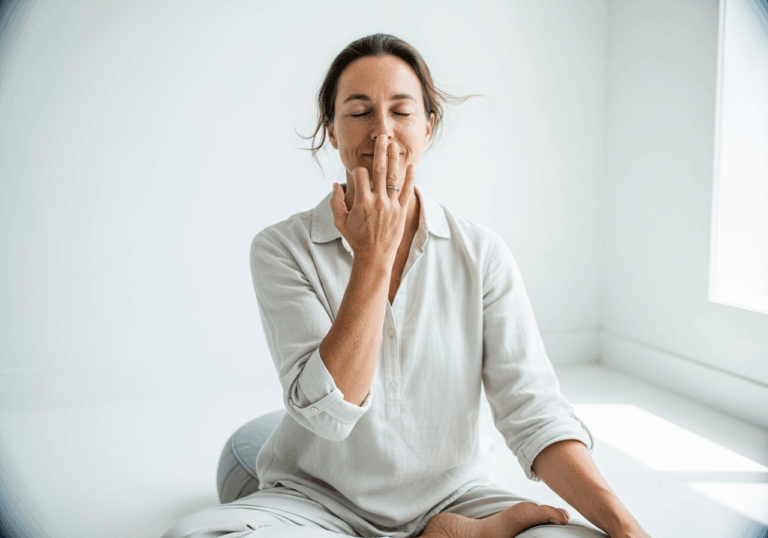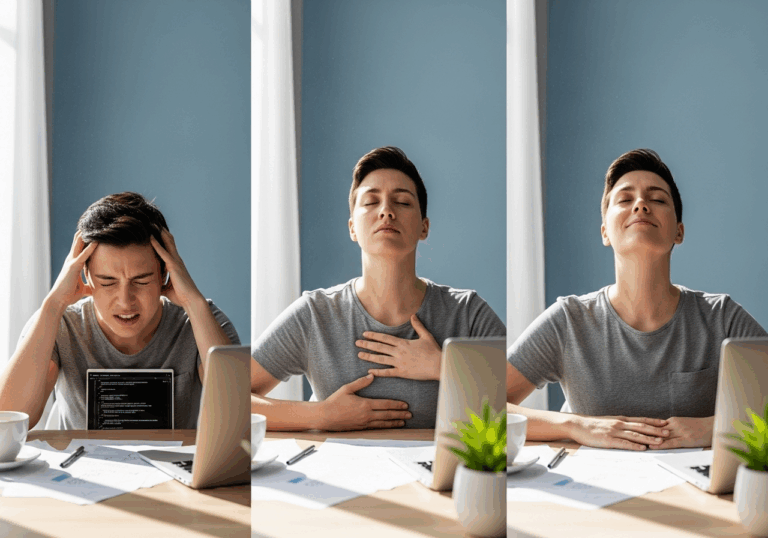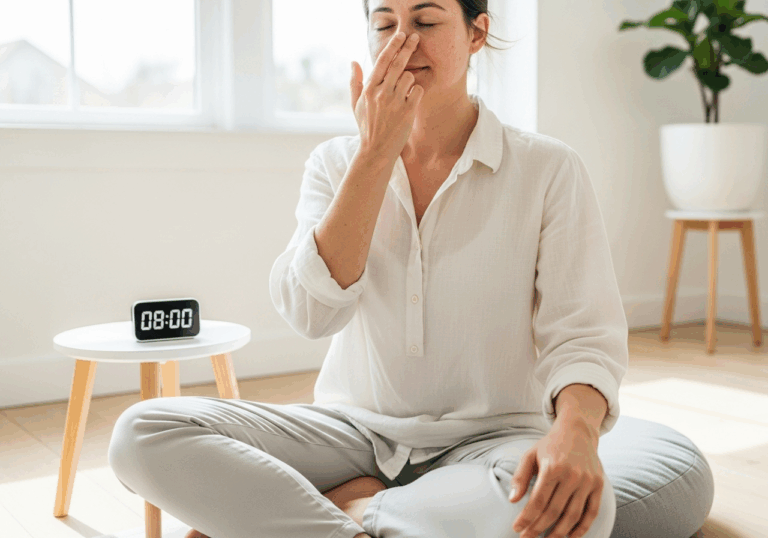Science-Backed Tips
Transform Your Mood with Resonance Breathing
Reduce stress by 30% with just 10 minutes daily.
📊 Did you know?
💡 Why It Matters
1️⃣
Consistent practice of resonance breathing can lead to a 20-40% decrease in anxiety levels, improving overall mental health.
2️⃣
Increased HRV is associated with better cardiovascular health and resilience to stress.
3️⃣
Improving mood through physiological entrainment can enhance quality of life and productivity.
✅ Try These Micro-Tips
🎯
Practice resonance breathing for 10 minutes, twice daily.
🎯
Incorporate deep breathing exercises into your morning and evening routines.
🎯
Use guided breathing apps to help maintain consistency.
🎯
Track your stress levels and HRV to monitor improvements.
📚 The study
This is not just a statistic; it underscores the profound impact that simple breathing techniques can have on our emotional and physical well-being.
By improving HRV, individuals can experience better cardiovascular health and increased resilience to stress, ultimately fostering a more positive mood and enhancing overall quality of life.
The implications of this research are vast, suggesting that incorporating resonance breathing into daily routines can be a powerful tool for anyone looking to boost their mental health and productivity.
With the potential to transform how we manage stress, this study highlights the importance of consistent practice in achieving lasting improvements in mood and health.
Whether you are a busy professional, a student, or someone simply looking to enhance your emotional well-being, the practice of resonance breathing could be the key to unlocking a healthier, happier you.
❓ Frequently Asked Questions ❓
Learn more
What is resonance breathing?
Resonance breathing is a technique that involves breathing at a specific rate to promote relaxation and reduce stress. It typically involves inhaling and exhaling at a consistent rhythm, often around six breaths per minute.
How does resonance breathing affect stress levels?
Practicing resonance breathing can lead to a significant reduction in self-reported stress levels, with studies showing decreases of approximately 30%. This technique enhances physiological entrainment, which helps regulate the body’s stress response.
What is HRV and why is it important?
Heart Rate Variability (HRV) is the variation in time between heartbeats, and it is an indicator of autonomic nervous system function. Higher HRV is associated with better cardiovascular health and increased resilience to stress.
How often should I practice resonance breathing?
It is recommended to practice resonance breathing twice daily for optimal results. Each session should last about 10 minutes to effectively reduce stress and improve mood.
Can resonance breathing improve my mood?
Yes, consistent practice of resonance breathing can enhance mood by promoting physiological changes that reduce anxiety. This improvement in mood can lead to a better quality of life and increased productivity.
What are the benefits of increased HRV?
Increased HRV is linked to better cardiovascular health and a stronger ability to cope with stress. It also indicates a more balanced autonomic nervous system, which is crucial for overall well-being.
How can I track my stress levels and HRV?
You can track your stress levels and HRV using wearable devices or smartphone apps designed for this purpose. Regular monitoring can help you observe improvements over time as you practice resonance breathing.
Are there any tools to help with resonance breathing?
Yes, there are many guided breathing apps available that can assist you in maintaining a consistent resonance breathing practice. These apps often provide visual or auditory cues to help you stay on track.
What is the significance of a 20-40% decrease in anxiety levels?
A 20-40% decrease in anxiety levels indicates a substantial improvement in mental health and well-being. This level of reduction can lead to enhanced daily functioning and overall life satisfaction.
How long does it take to see results from resonance breathing?
Results from resonance breathing can typically be observed within two weeks of consistent practice. Many individuals report noticeable reductions in stress and improvements in mood during this time.





